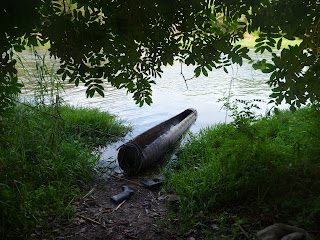 Work continues in earnest. The ward rounds continue and I continue to study tropical medicine hard. There have been some great presentations from the Junior Doctors at our weekly teaching and it is awesome to see their presentation skills improving. Not only this, but it is a great opportunity for us to learn. We have chosen a ‘top 20’ presentations based on signs and symptoms we have seen a lot of on the wards and have divided them into system categories (for example, cardiovascular system, respiratory system etc) and each week a topic is presented discussing the different symptoms or signs in general followed by a more detailed discussion about a specific disease (for example Typhoid, or viral hepatitis). They present on the ‘gold standard’ treatment that would be available with all tests and drugs at our finger tips and then we discuss the management of that particular disease in South Sudan, with the more limited resources at our disposal. It is very interesting and is actively changing my practice on the wards.
Work continues in earnest. The ward rounds continue and I continue to study tropical medicine hard. There have been some great presentations from the Junior Doctors at our weekly teaching and it is awesome to see their presentation skills improving. Not only this, but it is a great opportunity for us to learn. We have chosen a ‘top 20’ presentations based on signs and symptoms we have seen a lot of on the wards and have divided them into system categories (for example, cardiovascular system, respiratory system etc) and each week a topic is presented discussing the different symptoms or signs in general followed by a more detailed discussion about a specific disease (for example Typhoid, or viral hepatitis). They present on the ‘gold standard’ treatment that would be available with all tests and drugs at our finger tips and then we discuss the management of that particular disease in South Sudan, with the more limited resources at our disposal. It is very interesting and is actively changing my practice on the wards. Our Acute Medicine ward rounds have wandered into some interesting obstacles. They are much longer than they are used to, and especially long if we are teaching as well, though still short by English standards; say 3 or 4 hours. We originally wanted to start at around 9am, but after a few days of turning up then it turned out the cleaners would do their washing then and this involves turning the floor into a swimming pool for a few hours so ruled out a round. Also, they do such a good job we didn’t want to get in the way. So rounds on the Acute Ward start at 10am. However, this means a finish on that ward at around 1.30pm and pharmacy shuts then. So, we started to get complaints from pharmacy that they would not issue any drugs to my patients, rendering the ward round pointless. Meanwhile, the nurses were complaining that ward round was creating too many jobs for them. Brilliant. We are still working our way to a compromise as we are reluctant to agree to the suggestion that we only see a couple of patients each day and leave the rest to battle the disease alone. We shall see if we can find a way out of this Catch 22.
As far as rest and relaxation is concerned we really stumbled in to a winner. After hearing about an up and coming trip down the Nile from the Ugandan border at Nimule to Juba we were keen to get involved and managed to join the first ever commercial trip down that stretch of the Nile. It involved a few days of bush camping in the depths of the Sudan bundu and a mixture of decent white water and long stretches of scenic surrounds. Much of the area is unpopulated and dense vines hang from deep green trees that cling to the riverside rock with long fingers of gnarled root probing the cracks to prevent them from tumbling into the muddy water. When camping it was sensible to stay near the river edge as some areas are still littered with land mines and while washing in the waters’ edge you could pull out unexploded artillery shells a foot long from Russian-made mounted machine guns at certain points along the voyage. It was an awesome trip and great to get out of Juba for a change. Thanks to Pete and Jane the South Africans who put the trip together.
























